- Home
- Jean Stone
Once Upon a Bride
Once Upon a Bride Read online
CONTENTS
Title Page
Dedication
Prologue
Chapter 1
Chapter 2
Chapter 3
Chapter 4
Chapter 5
Chapter 6
Chapter 7
Chapter 8
Chapter 9
Chapter 10
Chapter 11
Chapter 12
Chapter 13
Chapter 14
Chapter 15
Chapter 16
Chapter 17
Chapter 18
Chapter 19
Chapter 20
Chapter 21
Chapter 22
Chapter 23
Chapter 24
Chapter 25
Chapter 26
Chapter 27
Chapter 28
Chapter 29
Chapter 30
Chapter 31
Chapter 32
Chapter 33
Chapter 34
Chapter 35
Chapter 36
Chapter 37
Chapter 38
Chapter 39
Chapter 40
Chapter 41
Chapter 42
Chapter 43
Chapter 44
Epilogue
About the Author
Also by Jean Stone
A Preview of Twice Upon a Wedding
Copyright Page
TO MY SISTER, JOAN,
WHO TAUGHT ME THE MAGIC
OF MAKE-BELIEVE.
PROLOGUE
How well do you think you understand women?” John Benson asked the question as if it had an easy answer.
Andrew Kennedy laughed. He sipped his martini and leveled his eyes on his long-ago mentor, now the hard-driving editor of Buzz magazine, the sexy male counterpart to Cosmo and Elle, the GQ with soul, the Playboy with intellect.
“About as well as any forty-two-year-old, unattached male,” he replied.
John raised his gray-white eyebrows. “Perfect,” he said. “I'd do it myself, but my wife might object.” It was rumored—had been rumored for years—that John's marriage was, at best, shaky, his string of “other women” as long as the female queue at a Springsteen concert.
Andrew's gaze fell to the provocative covers of the latest Buzz issues splayed across the large glass cocktail table. He supposed he was being set up, that he was being recruited for something to which he'd have to say no.
With a slow, cautious smile, he let his eyes wander the spacious, thirty-fourth-floor office, out the window past Rockefeller Plaza and the NBC headquarters (“30 Rock” the media called it), over the treetops of Central Park. He did not miss the city. After a startling divorce that left him with the baffling chore of raising his then five-, now eleven-year-old daughter, he'd found solace in the Berkshire Hills of Massachusetts, trading his subway tokens for an old Volvo, his 73rd Street apartment for a cottage with a yard, and high-pressure journalism for an assistant professorship at Winston College.
He was not unhappy.
And yet, when John had called and asked Andrew to come to New York and check out his new office and his new job, Andrew had not hesitated.
He sipped his drink. The gin was deliciously reminiscent of late nights and warm sheets and Patty. He shifted on the art deco, black leather chair. “Okay, John,” he said. “What's this about?”
The older man cleared his throat. He circled the rim of his glass with a large, manicured fingertip. “Buzz is in trouble. They hired me to give it a quick boost.”
Andrew listened because John was his friend, had been his friend, despite the fact he was twenty years older and actually thrived on the lifestyle that Andrew had grown to detest.
“Women's magazines feature columns about men,” John continued, “how we think, what we want, that kind of crap. I think Buzz could shake things up with a high-voltage column about women. Written, of course, by a man.”
“Which would increase circulation.”
“And much needed ad dollars.”
Andrew laughed again. “I'm a journalist, John. Not Ann Landers. Or that Sex and the City girl, Carrie What's-Her-Name.” He did not want to admit that his recent track record hardly qualified him. John, after all, did not know that Andrew was now a content bachelor father, that too many misshaped relationships had turned him off from even joining a singles club or enrolling in lovemates.com.
“I'll double your teaching salary,” John said.
“If I wanted money I'd have kept my job at The Edge.” It had been entertainment television disguised as broadcast journalism, and Andrew had been relieved when he'd finally quit. “Besides, the magazine can't afford me if it's in trouble.”
“You'd be an investment, Andrew. A sure thing.”
Andrew toyed with his drink. “What's the catch?” he asked, because there always was one.
“I need the first installment fast. The September issue goes on the stands in five weeks.”
“I'm sort of busy right now.”
“It's summer. School's out.”
“I'll be teaching three courses in the fall. And I'm the faculty advisor for the college newspaper.”
“I can arrange a sabbatical. You can lie. Say you've decided to work on your doctorate.”
Andrew studied the olive swimming in his glass. He had to admit that lately there had been moments when he wondered if his life had become too academic, if he spent too many hours in the quiet of libraries with too many dusty old books. But did he want the life he'd once had? Shaking his head, Andrew said, “There are plenty of writers in the city, John. I can't move back. Cassie loves the Berkshires.”
“I don't want you here. I want you out there, in the trenches. Buzz is for men who live in Kansas and Idaho and even the Berkshires. The women you write about should be from there, too. Not city-slick women that men can't relate to.”
Andrew swirled the gin. Not city-slick women like Patty, who had so slickly broken his heart.
“I want to title the column ‘Real Women.'”
“And you're convinced I can do it?”
“You're a hell of a writer, Andrew. My guess is that women think you're not bad to look at. You should have no trouble going under cover, so to speak. Getting to the core of their hearts and their minds.”
“And then telling all?”
John raised his glass. “Precisely,” he said.
If the idea had come from anyone but John Benson, Andrew would not have believed it could work. “How do you propose I find these ‘real women'?”
“The Andrew David I knew was always inventive.”
Andrew sighed. “It's Andrew David Kennedy again.” He had reattached his last name after he'd stepped out of the limelight.
“It doesn't matter,” John said. “For this assignment you'll be incognito. Sign on with Buzz for a year?” He had more class than to mention that Andrew owed him, that it had been John who'd secured Andrew the post at Winston College, the man's alma mater, the place where he'd endowed a chair back in the late eighties before the media world splintered into shards of financial competition. It had been John who had saved Andrew's sanity, if not his life.
Besides, Andrew thought, closing his eyes, Cassie's riding lessons had become expensive. He could use a new car and a new roof on the cottage. And more money would mean he could take Cassie to Australia to visit her mother. He opened his eyes. “How about six months?”
John reached over and shook Andrew's hand. And Andrew could not help but wonder what he had agreed to, and where in God's name he should start.
1
That's the ugliest wedding gown I've ever seen,” Sarah said. She leaned back in her chair, her long black hair swaying with her movement, her dark
eyes blinking with acerbity. “I can't wait to see what she's picked out for us.”
Jo wanted to agree, but didn't dare. Elaine was only in the ladies' room and could return any moment. Sarah was right, however, the gown was horrible.
Lily shook her head, her short blond curls bouncing like little clouds of milkweed puffs against her pink cheeks. “We can't let her do it,” she whispered in horror as she plucked the bridal magazine from the table at Le Fusion, the latest boutique restaurant in the small New England town that had once been quaint but was now tourist-choked. “She never had great taste in college. I guess that hasn't changed in all these years.” She turned to Jo. “Josephine?” she asked as if awaiting confirmation.
Reaching for her wineglass, Jo glanced over at the picture of white satin bouffant with pink and blue organza roses set into excessive ruffles of tulle. The gown looked foolish, even on the angelic, eighteen-year-old model. On over-forty Elaine, it would look asinine.
Across the restaurant, Elaine emerged from the ladies' room. Her lavender polyester pants were too short, her eighties-style hair was dyed too brown and was too big. Yet Elaine marched along with happy steps, nodding and smiling as she passed the other luncheoning ladies who wore golf skorts and straw hats and had shopping bags from Ann Taylor and Lladró and Ralph Lauren. When Elaine reached her former college roommates, the women she'd selected as her bridesmaids for her “second-time around,” she dropped onto her chair with relief.
“Mercy,” she said, fanning herself lightly. “I'm not used to drinking in the middle of the day.” She smoothed the front of the pink-and-lavender-flowered big shirt, then adjusted her double-strand necklace of red and pink beads and the large dangle earrings that matched. Sort of.
Jo's eyes moved from flighty, elflike Lily to pensive, statuesque Sarah, extremes in looks and personalities, right and left wing, while Jo kept to the middle, with Elaine a few feet behind. Now Lily and Sarah expected Jo to break the news to Elaine. As the leader in the middle, it had always been Jo's role to be the obligatory mediator, the one with the most sense. Two decades apparently hadn't changed that, either. She sipped her wine. “Elaine, honey,” she said gently, “have you thought about getting professional help?”
Sarah nearly spit her wine across the table.
Lily's pink lips peeled back in a grimace, revealing professionally whitened, perfectly straight teeth.
Jo smiled. “For the wedding,” she continued. “Someone like a wedding planner.”
She might have said that one of Elaine's three kids had been arrested on drug-trafficking charges, given the bewildered look Elaine wore on her face. Then Elaine's eyes fell to the magazine that Lily still clutched. A wide grin appeared. “It's the white, isn't it? You think I shouldn't wear white!” She laughed a jovial laugh, then drank more of the wine she wasn't used to drinking in the middle of the day. “Well, this might surprise you, but I read that white no longer is a symbol of virginity. It now stands for ‘joy.' I guess they had to change it because there are no virgins left in the world.”
She drank again. No one laughed.
Jo leaned forward. “It's not the white, Elaine. It's the flowers. And the ruffles. And the, well, the little girl look. I know it's not fair. But even though there are tons of second and even third weddings, it still seems that all the books and magazines—and most of the fashions—are geared to twenty-year-olds.” She hoped she'd made her point without hurting Elaine's feelings.
Elaine's wine-pinkened cheeks slowly darkened to red. Even her Miss Clairol-ed hair seemed to deepen a shade. She snatched the magazine from Lily's hands. “I'm not entitled to the wedding of my dreams just because I'm over forty?” She didn't have to mention that she'd been cheated out of a wedding when she'd married Lloyd because they'd still been in college and Elaine had been pregnant, so they'd married in haste at the town hall. The redness abated and fat tears slid down her cheeks.
Lily produced a clean lace hankie from her Asprey purse.
Elaine waved it away, then reached into her crocheted tote bag and located a travel pack of Kleenex. She blew her nose loudly.
The waitress appeared bearing three oriental chicken salads with dressing on the side, and a veggie platter for Sarah.
“Maybe we can help,” Jo suggested once the waitress had left. “After all, as your bridesmaids, we have a vested interest.” She grinned and patted Elaine's hand. “It's a little more than three months until the wedding, right?”
“I didn't want to wait,” she said apologetically.
“Three months is acceptable,” Lily interjected. “Only first-time brides need a year or more to plan.”
Lily, of course, would know.
“Then we will do it in three months,” Jo said. “Lainey, let us be your wedding planners.”
Elaine blinked. “My ‘wedding planners'? But you live in Boston.”
Jo cleared her throat. “Actually, I've been thinking I might come back for a while. My mother's getting older . . . I want to be sure she can still live on her own.” She tried to sound casual and hoped the others didn't notice the tremor that had sneaked into her voice.
“You might come back to West Hope?” Elaine asked. “But what about your business? What about your career?”
Despite a degree in elementary education, Elaine had only taught fourth grade between her second and third kids, then gave up on working altogether. For the past several years she volunteered part-time at the library and served on countless town boards, but as far as Jo knew, Elaine had no interest in business or careers, certainly not Jo's.
Folding her hands, Jo forced her best smile. “I've been thinking about branching out. The Berkshires could use a strong public relations firm. Attractions have grown. Tourism has escalated. We'll soon outpace any New England venue except the Cape and islands.” All of which had little to do with Jo's recent debate with herself about moving back. The truth was, her life was no longer the same, and “home” was what now seemed safe. The others, however, did not need to know that. “But I haven't decided. In the meantime,” she added quickly, “planning your wedding would be fun.” She turned to Sarah. “You're so creative, Sarah. If I organize the wedding, maybe you can make it magical. Elaine's dream come true.”
“I design jewelry,” Sarah protested. “Not wedding dresses and reception halls.”
Elaine lowered her eyes.
Sarah shifted on her chair. “Well,” she added, “I suppose I could try.”
Lily clapped her hands. “And I'll pay!” she exclaimed.
All eyes turned to Lily. Elaine broke the stunned silence. “But you live in New York.”
“Don't be silly,” Lily said, dismissing Elaine's comment. “It's a three-hour train ride from Manhattan. It isn't Timbuktu. Besides, it would be such a hoot to be together again! And how better to squander a chunk of Reginald's money if not with my friends?” Lily had recently become a widow when her much older, wickedly wealthy husband had sadly succumbed, leaving his beloved wife, Lily, (and his “beastly old sister, Antonia”) a portfolio that probably bulged with more stocks and bonds than Lily could count. She laughed and said, “Think of it as a loan you won't have to repay. Think of it as your second chance.” She raised her glass in toast to poor, dead Reginald.
Elaine gasped. “You mean it.”
Sarah nodded. “She means it.”
Jo held up her glass. “To second chances,” she said, and they clinked all around. Jo had little idea what had just happened. But for the first time in months, her spirits had lifted and she thought that maybe her life wasn't over after all.
She had been named “Most Likely to Succeed” by her high-school class. Josephine “Jo” Lyons had also been the captain of the debating team, the president of the student council, and the editor of the yearbook. She had been those things once. Now she was just a middle-aged woman sitting on the edge of the bed in her childhood home, wondering how it had happened that life had come full circle, with Elaine getting married while Jo was not,
nor was Lily (perhaps to her chagrin), nor was Sarah, who no doubt preferred it that way.
They had always been different, the Winston College roommates. Lily said they were friends because of that, because they never were attracted to the same types of men, so there was no competition.
Jo had been the studious townie who had saved her money from waitressing during tourist season so she could live on campus and feel she'd left town, as if at last her life could begin. Jo had been attracted only to one man, Brian Forbes, who was tall and handsome, gregarious and a bit of a bad boy. He had been like her father, she supposed.
Elaine had been the domestic diva wanna-be (despite her dubious taste) long before such a label had been coined by a questionable marketing guru who might have had close ties to Martha Stewart or Pottery Barn. Though Elaine had come from Upstate New York, she and Lloyd had settled in West Hope because his family was there and she'd been embarrassed by the “premature” baby and all. Although Lloyd had gone to law school, Jo had thought of him as rough around the West Hope edges, a small-town boy without the polish, destined for a mediocre life.
Lily had been the orphan raised by a wildly eccentric, rich aunt. A fun-loving, cheerful city girl, Lily knew all the latest fads—like shawls and boots and the resurgence of miniskirts—long before West Hope got wind of them. Lily had been attracted to lots of men, mostly older, mostly wealthy, mostly those who doted on her with great sincerity.
Sarah had been the exotic roommate, having traveled from the West, a Native American with a mysterious ancestry that she'd turned her back on. She'd remained in the Berkshires, in a town even smaller than West Hope, deep in the woods. She never shared much about the men she dated in college, or about the now-famous musician with whom she'd shared her life for many years. He, too, kept their private life private.
Jo's mother used to say she could tell the difference between the roommates by the way they walked. Marion said that even with her eyes closed, she knew that Lily had the light steps of a ballerina; Sarah, the long strides of a slow yet deliberate woman; and Elaine, the short, clipped gait of a majorette. Marion knew Jo's steps, of course, because she was her daughter. She often described them to the others as steady and sincere, if not always heading in the right direction.

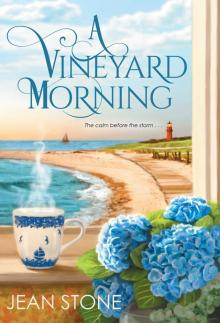 A Vineyard Morning
A Vineyard Morning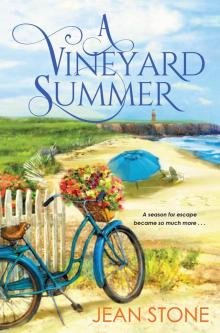 A Vineyard Summer
A Vineyard Summer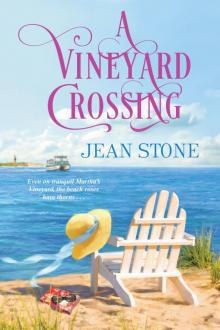 A Vineyard Crossing
A Vineyard Crossing A Vineyard Christmas
A Vineyard Christmas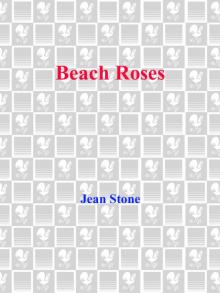 Beach Roses
Beach Roses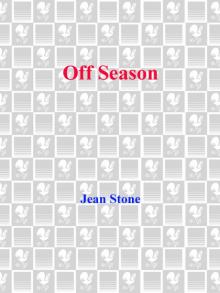 Off Season
Off Season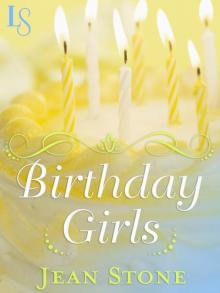 Birthday Girls
Birthday Girls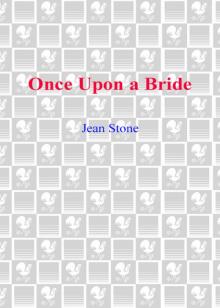 Once Upon a Bride
Once Upon a Bride Places by the Sea
Places by the Sea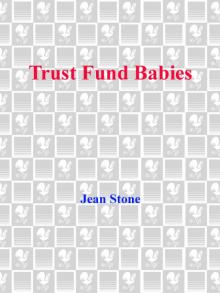 Trust Fund Babies
Trust Fund Babies The Summer House
The Summer House Tides of the Heart
Tides of the Heart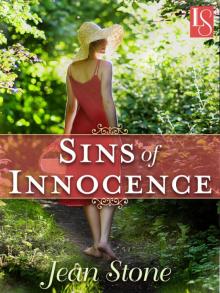 Sins of Innocence
Sins of Innocence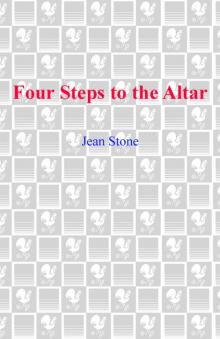 Four Steps to the Altar
Four Steps to the Altar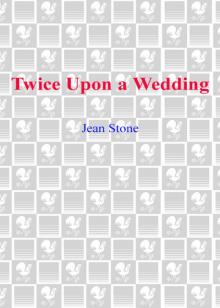 Twice Upon a Wedding
Twice Upon a Wedding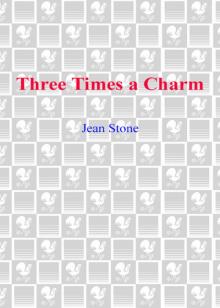 Three Times a Charm
Three Times a Charm